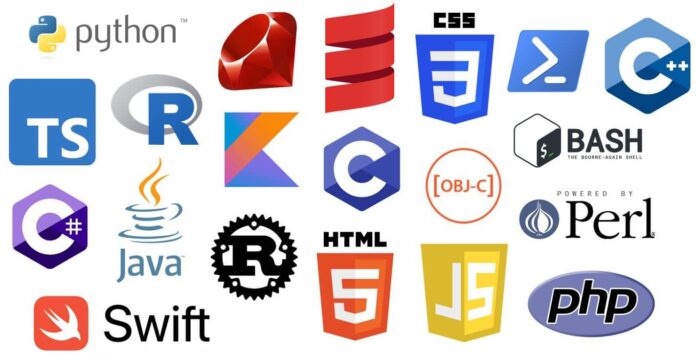Programming languages are collections of rules and keywords that give computers instructions to follow. Today’s technological sector requires a strong understanding of software programming and coding, particularly in the area of cybersecurity.
The capability to write code and a proper understanding of programming languages are not always essential for cybersecurity professionals, but they are becoming crucial to success in the industry. This is so that they can read the code that is frequently requested of them and spot the activity of malicious threat actors.
It can be difficult to decide which programming languages to study, though, if you’re a young student or are just beginning your career in cybersecurity. Although you can always learn additional languages along the way, we provide you a quick overview of some of the most helpful programming languages in cybersecurity in this article. Which are:
- Python
- JavaScript
- Java
- C/C++
- PHP
Nowadays, most respectable universities offer programs and courses in software programming. However, some students find it extremely challenging to learn and create simple computer-readable code. This impossibility could be brought on by a lack of time, money, or desire. In this situation, it would be wise to use college-paper.org to get your college papers prepared. Writing service services reviews provide a well-organized, comprehensive list of the top essay writing services and their prices in case you need further assistance with producing your papers.
Choosing a programming language that is relevant to cybersecurity and that you can learn to advance your career in the sector is a good choice once you’ve overcome these early hurdles.
Let’s examine some of these languages in more detail to see what advantages they may have for cyber incident response and ransomware prevention:
-
Python
Python has an advantage over other programming languages since it is extensively used by developers and data analysts. Python is straightforward to learn because to its universality and simple syntax. Python is the best language for both beginners and experts because of its characteristic. It offers an extensive library of popular tools that serve as a backup for frequent operations and instructions.
Python was used by programmers to develop a vast collection of digital platforms, applications, and software. Python is a widely popular programming language that developers use for both simple and complex tasks because of these features.
It is one of the greatest languages for cybersecurity experts to know because of its clear syntax and code readability. You can use it to analyse malware, find vulnerabilities, build your own intrusion detection systems, and generally rely less on third-party tools.
-
JavaScript
Another popular programming language that allows developers to build websites from scratch is JavaScript. It is ideal for developing a variety of website features. The applications of JavaScript are expanded by a large range of insert.
Being familiar with JavaScript can help you keep one step ahead of hostile actors because it is very usable and a crucial part of developing web pages. Learning JavaScript can improve your understanding of how websites and applications operate, giving you the knowledge you need to make your company’s website or app safer.
A JavaScript attack, or cross-site scripting, is one of the most popular types of cyberattacks in which the hacker inserts harmful code into a web application. Understanding JavaScript is frequently essential to protect against such attacks.
The cybersecurity team of your company or a business owner must, however, have a strong cyber incident response plan and strategy for cross-scripting cyber-attacks in addition to speaking the language. Being one step ahead of attackers is really not possible, but being ready for the unexpected and having a plan to reduce damage is equally important.
-
Java
The Android operating system uses Java, another widely used programming language, significantly. Any platform that supports Java can run Java. E-commerce, finance, and app development all use Java. It is presently ranked as the third best programming language.
One of the crucial tasks a cybersecurity professional must perform is indentation testing, and knowing Java makes this task much simpler. Since Java is a much more dynamic programming language than many others, ethical hackers frequently use it to create and develop ethical hacking applications.
Do spend some time learning Java if you’re an InfoSec professional and Pen-Testing is a significant component of your job.
-
C/C++
One of the original content languages is C. It’s similar to how C++ is a developed form of C. Both languages are fast, accurate, and efficient. They are therefore excellent candidates for developing a variety of applications.
The languages most frequently used for low-level programming are C/C++. It’s interesting to note that the most common way for hackers to reach huge networks is through low-level elements like RAM and system processes.
The need to secure this fundamental infrastructure makes understanding C/C++ extremely useful. A number of cybersecurity applications, such as the Network Mapper Tool, are also developed in C++, demonstrating the significance of this language for cybersecurity specialists.
-
PHP
A general-purpose scripting language targeted toward web development is PHP. PHP enables specific types of active data collection from the server by your scripts. It was mostly used by developers to develop dynamic, interactive websites.
Understanding PHP will assist you in recognizing and analyze any unusual behaviour on your website because it is the language used to build the majority of websites. Moreover, when you are proficient in PHP and other essential abilities, cyberattacks like Denial of Service (DDOS) attempts that makes websites and web applications unavailable to intended users can frequently be stopped and avoided.
Conclusion
The foundation of websites, web apps, and sometimes even cybersecurity technologies are programming languages. Therefore, it is important to become proficient in at least 2-3 of the listed languages as a security expert.





